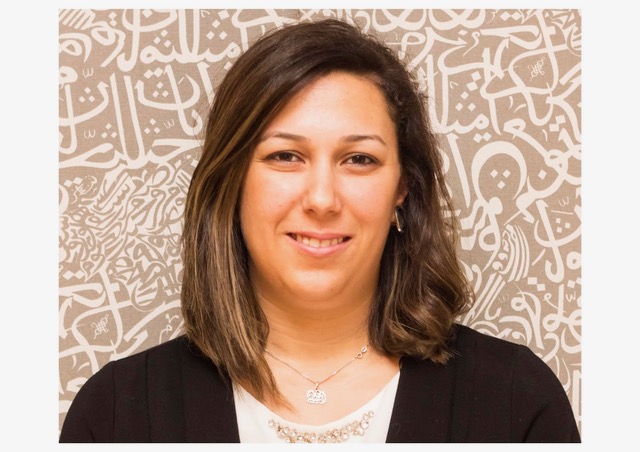In a nutshell
Refugees and asylum-seekers in Egypt are highly involved in the private informal sector, where they work within their community in retail shops or in some form of trade with local people.
The curfew and lockdown measures adopted by the government in its plan to combat the spread of Covid-19 have had a negative impact on the livelihoods of this vulnerable group.
The limited financial resources of refugees and asylum-seekers, along with the absence of any form of health coverage or insurance, are putting their health at risk.
Egypt is considered both a destination country and a transit country for refugees and asylum-seekers. As of March 2020, the country had more than a quarter of a million registered refugees (26%) and asylum-seekers (74%), comprised of at least 58 different nationalities.
Registered refugees and asylum-seekers mainly live in urban areas, concentrated particularly in the governorates of Greater Cairo (Cairo, Giza and Kalyobia) and Alexandria. More than half of them are of working age: 58% are in the age group 18-59.
There are also many unaccompanied refugee children in Egypt, whose lives are particularly complicated. For a start, the journey of migration and separation from families tends to be, in most cases, traumatising to the extent that it clouds the decisions of these young and separated children.
While there is no official breakdown in the announced numbers of unaccompanied refugee children, there seems to have been approximately 4,000 of them in Egypt at the end of 2018. These children are granted asylum on arrival in the country, yet they still face racism and hostility in addition to lacking the economic support and legal protections needed to survive.
Struggling with survival, health and safety
During their time in Egypt, refugees and asylum-seekers have the option of becoming economically active and engaging in a job to generate income, or they can depend on financial transfers (from international organisations or family and friends abroad) and borrowing, which further increases their vulnerability. The situation in Egypt has made it more challenging for refugees, and especially children/minors (unaccompanied or not), to integrate into the labour market and thereby achieve financial autonomy.
The economic and financial vulnerability of refugees and asylum-seekers is compounded by local labour markets, as well as the regulations and policies regulating those markets. Refugees and asylum-seekers generally live on the margins of society, struggling to secure their livelihoods. They share similar living conditions to poor Egyptians, locating in the poorer neighbourhoods in urban cities, mainly around Greater Cairo and Alexandria.
The restricted integration of refugees and asylum-seekers in Egypt is mainly due to the country’s weak infrastructure. The high population growth rate and the bulge in the demographic structure of the Egyptian population at education and working ages have led to the low quality of the education system and its capacity to cater for the already very large national population. In addition, there are high rates of unemployment, especially among local youths. In light of local labour market ailments, Egypt’s government has placed restrictions on foreigners’ right to work to protect its national labour force.
This means that refugees and asylum-seekers are treated like any other foreigner, subject to labour laws and required to obtain a work permit. Applications for work permits have to be submitted through employers, and they are subject to the number of Egyptians already working in an organisation and the activity of that organisation.
If an application is approved, a fee has to be paid and the employee has to submit documents, including HIV test results, travel documents and copies of passports or UNHCR (United Nations High Commissioner for Refugees) refugee cards. Like foreigners, refugees do not have access to certain professions, such as tourism, exports and customs-related jobs.
Stereotypes of refugees as poor, illiterate and low-skilled add to their problems. Employers are reluctant to go through the process and expenses of hiring foreigners, who may not be fully productive, due to their lack of skills and education. Accordingly, lack of skills and opportunities for legal employment, as well as competition with Egyptians, perpetuates economic vulnerability.
Struggles of refugees and asylum-seekers with Covid-19
Refugees and asylum-seekers typically behave as collective communities, with limited interaction with local people or communities of different nationalities. Sharing living arrangements with each other is considered a survival approach for refugees and asylum-seekers. They manage to share rent and daily living expenses to reduce the daily cost of living.
Refugees and asylum-seekers are highly involved in the private informal sector, where they work within their community in retail shops or in some form of trade with local people. The curfew and lockdown measures adopted by the government in its plan to combat the spread of Covid-19 have had a negative effect on the livelihoods of this vulnerable group.
Adding to the struggles facing the refugees and asylum-seekers, children and adults equally, is their lack of access to health services. Their limited financial resources, along with the absence of any form of health coverage or insurance, are putting their health at risk.
Co-existence with the virus is posing health risks for entire communities, with greater risks shared among refugees and asylum-seekers. Living together in large groups under one roof and their limited access to health services puts their lives at greater risk. The UNHCR is working hard to cater to the livelihoods needs of the refugees and asylum-seekers while addressing their health vulnerabilities. This is adding to the uncertainties and difficulties of their lives.


